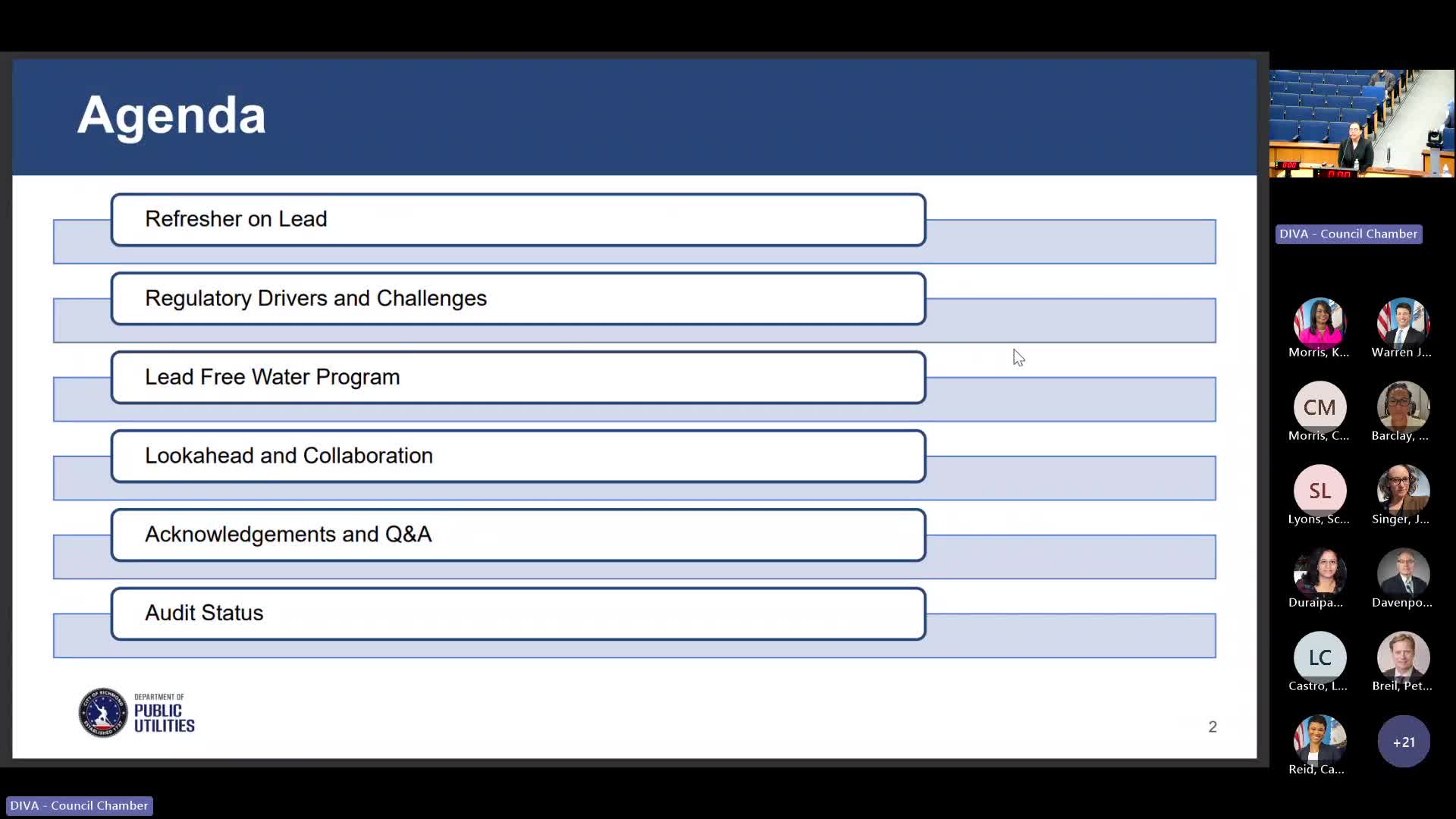Richmond's DPU outlines lead service line replacement challenges and future plans
April 23, 2025 | Richmond City (Independent City), Virginia
Thanks to Scribe from Workplace AI , all articles about Virginia are free for you to enjoy throughout 2025!

This article was created by AI using a video recording of the meeting. It summarizes the key points discussed, but for full details and context, please refer to the video of the full meeting. Link to Full Meeting
The meeting emphasized the serious health risks associated with lead exposure, particularly for vulnerable populations such as infants, young children, the elderly, and pregnant women. DPU officials reassured attendees that Richmond's drinking water is lead-free when it leaves the treatment plant, thanks to effective corrosion control measures. However, concerns remain regarding lead that may leach from aging service lines made of lead or galvanized steel.
A key focus of the discussion was the upcoming Lead and Copper Rule Improvements (LCRI), set to take effect in 2027. This regulation mandates the removal of all lead service lines under the city's control within a 12-year timeframe. DPU officials noted that approximately 66,000 service lines on private property remain unverified, complicating efforts to ensure compliance. The city will need to secure authorization from property owners for replacements, which presents logistical challenges.
To tackle these issues, DPU is pivoting from a customer-initiated grant program to a more efficient block-by-block replacement strategy. This approach will allow crews to assess and replace service lines in targeted neighborhoods, streamlining the process and maximizing resources. DPU is also ramping up public outreach efforts, including a service line inventory plumber program that offers free assessments for residential properties with four or fewer units.
As part of its ongoing commitment to transparency and community engagement, DPU is encouraging residents to participate in a service line inventory survey. This initiative aims to gather crucial data on the materials used in service lines, helping to identify areas most at risk for lead exposure.
Looking ahead, DPU plans to submit funding applications to the Virginia Department of Health in early May and will continue to update the community on its progress. The department is also seeking support from city council members to raise awareness about the lead service line replacement program and encourage residents to take action.
The meeting underscored the city's proactive stance on public health and safety, with DPU officials expressing optimism about the future of the lead service line replacement program and its potential to significantly reduce lead exposure risks in Richmond.
Converted from Richmond City - Governmental Operations Standing Committee Meeting - April 23, 2025 - Apr 23, 2025 meeting on April 23, 2025
Link to Full Meeting
Comments
View full meeting
This article is based on a recent meeting—watch the full video and explore the complete transcript for deeper insights into the discussion.
View full meeting